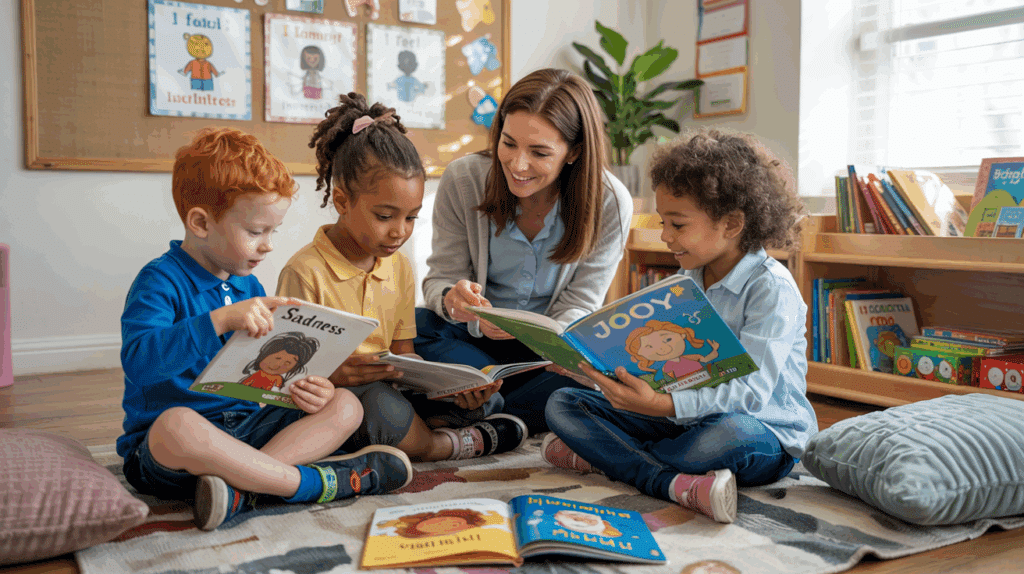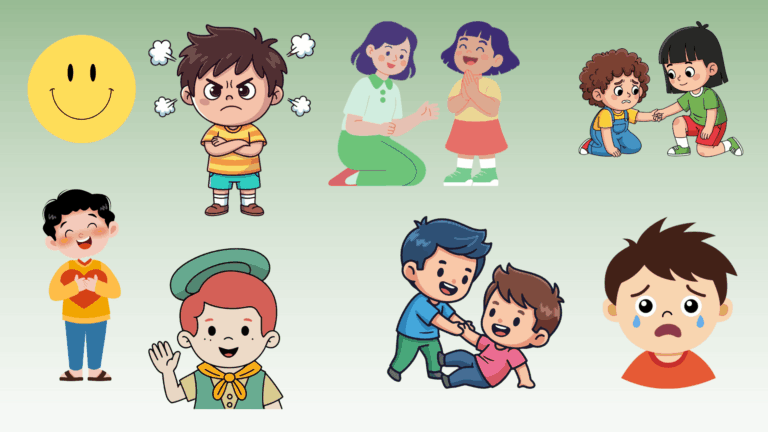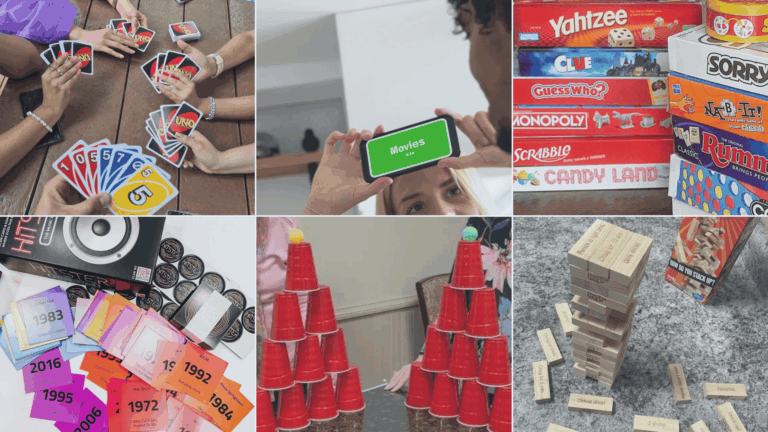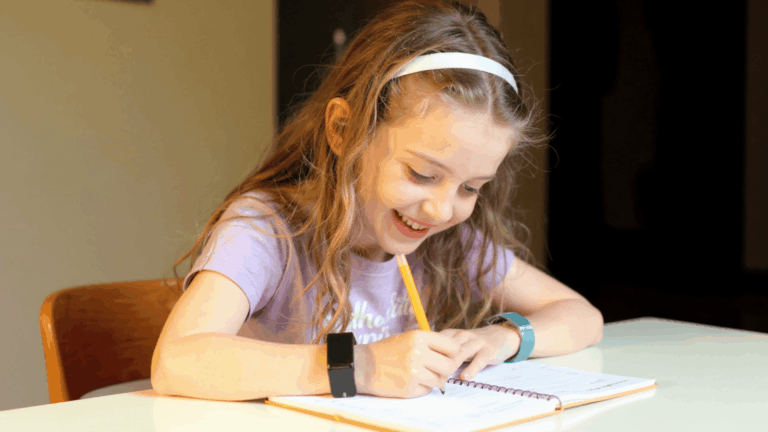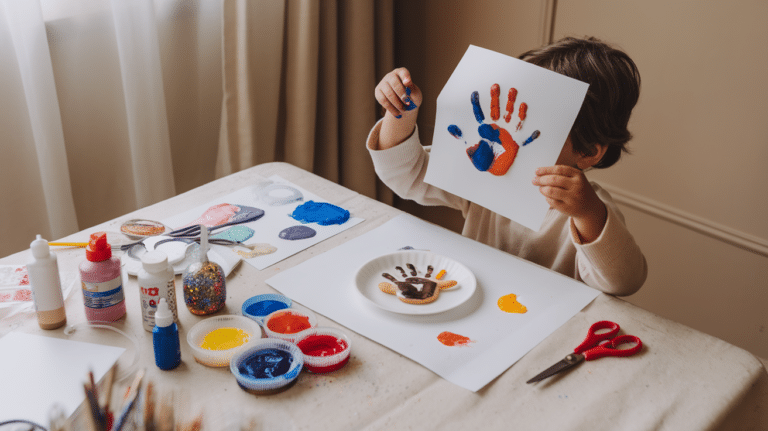Teaching I statements to kids builds a foundation for effective communication skills. These simple phrases help children say what they need without blame.
When kids use “I feel” instead of “you made me,” they learn to take charge of their emotions. I statements for kids work at home, in school, and with friends. They cut down fights and build trust. Try role-playing with your child to make this skill stick. Start small and praise their efforts.
The change won’t happen fast, but stay with it. Soon, you’ll notice fewer blame games and more honest talks.
Give your child this gift of clear speech now, and watch as doors open to better bonds and fewer tears. A slight shift in words today can create significant changes for tomorrow.
The Magic Behind I Statements for Kids
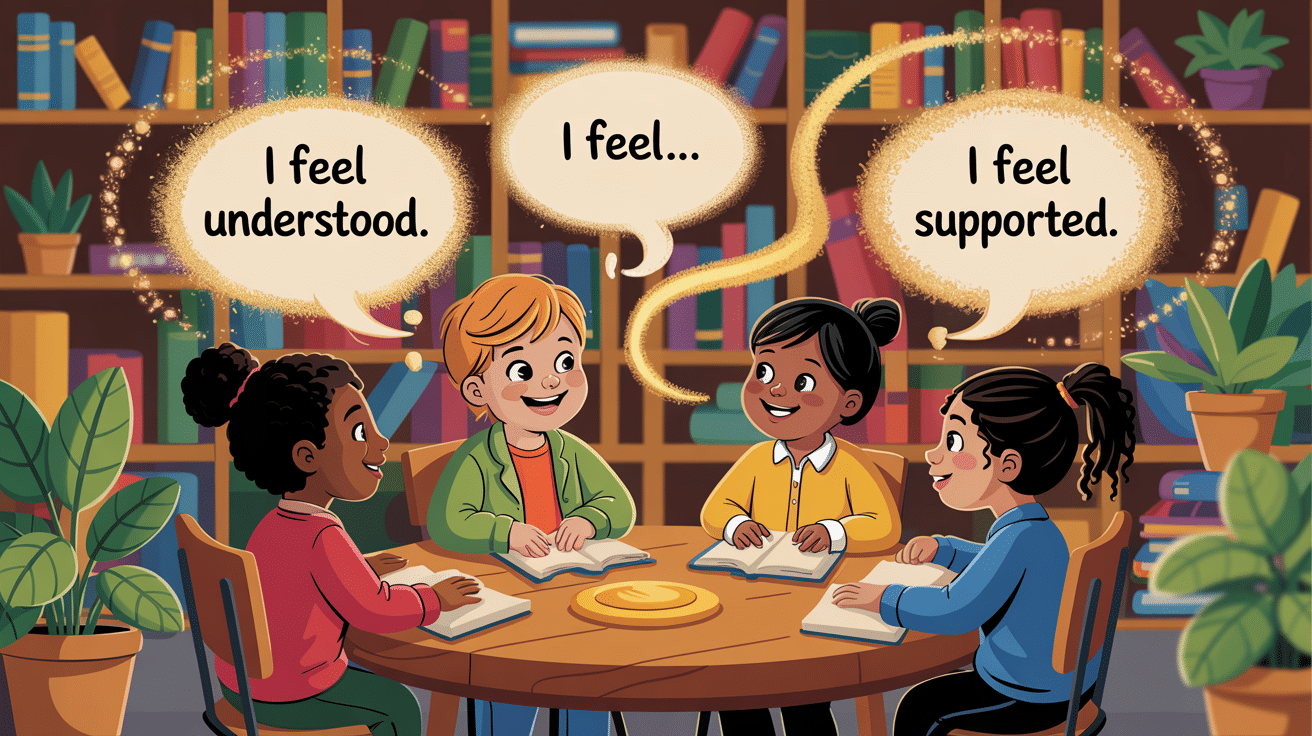
I statements for kids help them express their feelings straightforwardly. They follow a clear pattern: “I feel (emotion) when (what happened) because (why it matters).” This method shifts the focus from blaming others to sharing personal feelings.
Children who use these statements can express their feelings to others without causing further upset. For example, instead of “You broke my toy,” they learn to say, “I feel sad when my toy breaks because I liked playing with it.”
These word tools teach kids to own their feelings and solve problems. They work so well because they avoid making others defensive. When children use them, adults listen more. The skill takes time to learn, but the results are evident quickly in improved talks and fewer conflicts.
Examples of I Statements for Kids
Here are some useful phrases that can be applied in daily life. These examples make it easy to teach children this skill. Parents can use them as starting points and then create unique ones with their kids.
Expressing Feelings
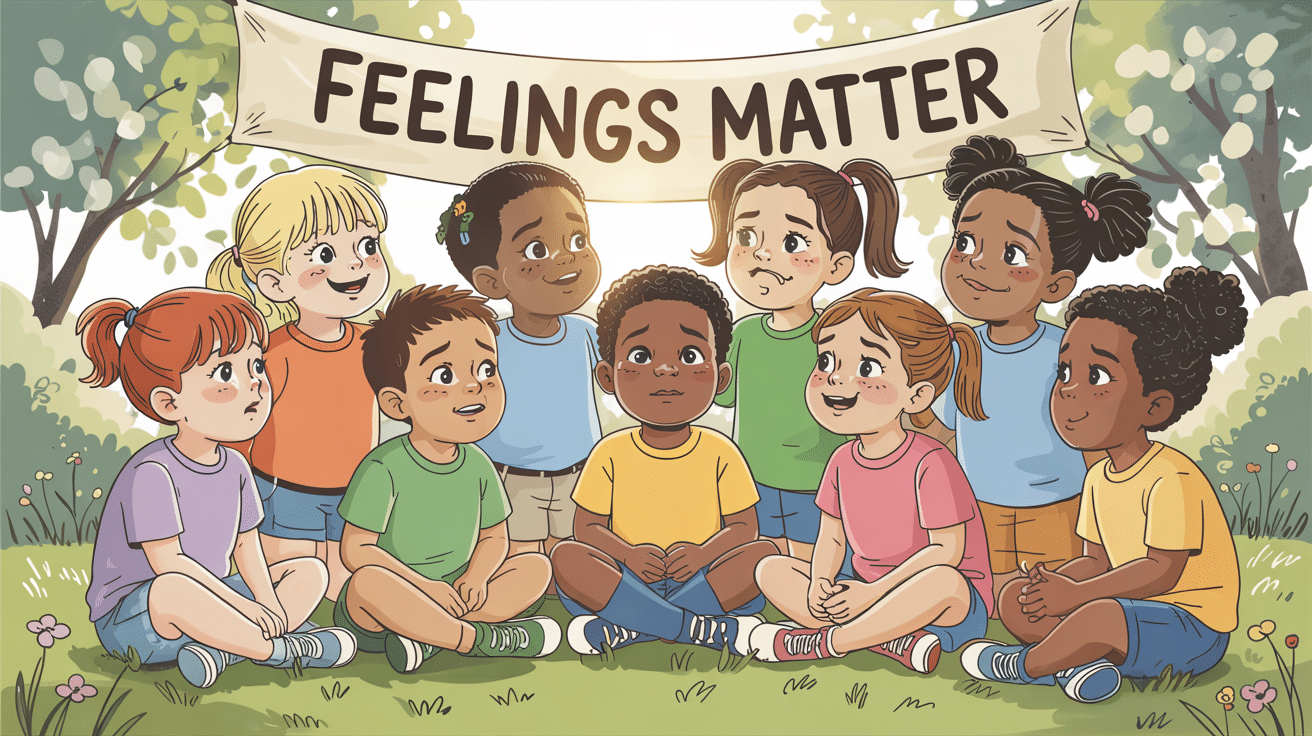
-
I feel happy when we play together at recess.
-
I feel sad when I don’t get to join the game.
-
I feel excited when you invite me to your birthday party.
-
I feel nervous when I have to speak in front of the class.
-
I feel proud when I finish my homework on time.
-
I feel left out when you don’t pick me for your team.
-
I feel worried when you are upset with me.
-
I feel grateful when you help me with my math.
-
I feel disappointed when plans change suddenly.
-
I feel scared when there is a thunderstorm.
-
I feel relaxed when I read my favorite book.
-
I feel angry when someone takes my things without asking.
-
I feel embarrassed when I make a mistake in front of others.
-
I feel confused when I don’t understand the instructions.
-
I feel joyful when we have a fun activity in class.
-
I feel tired when I go to bed late.
-
I feel energetic when I eat a healthy breakfast.
-
I feel shy when I meet new people.
-
I feel curious when we learn something new.
-
I feel hopeful when I try my best.
-
I feel peaceful when I listen to music.
-
I feel frustrated when I can’t solve a problem.
-
I feel motivated when you encourage me.
-
I feel jealous when someone else gets a reward I wanted.
-
I feel thankful when you share your snack with me.
-
I feel upset when you ignore me.
-
I feel silly when we tell jokes together.
-
I feel content when I finish all my chores.
-
I feel lonely when I have no one to play with.
-
I feel surprised when you give me a compliment.
-
I feel safe when you walk me to school.
-
I feel anxious when I have a big test.
-
I feel calm when I take deep breaths.
-
I feel loved when you hug me.
-
I feel excited when we go on a field trip.
-
I feel relieved when I find something I lost.
-
I feel proud when I help someone else.
-
I feel annoyed when you tap your pencil loudly.
-
I feel inspired when I see someone do something kind.
-
I feel bored when I have nothing to do.
-
I feel cheerful when the sun is shining.
-
I feel overwhelmed when I have too much homework.
-
I feel determined when I set a goal.
-
I feel respected when you listen to me.
-
I feel excited when I learn a new skill.
-
I feel peaceful when I spend time in nature.
-
I feel hopeful when things start to get better.
-
I feel appreciated when you say thank you.
-
I feel hurt when you make fun of me.
-
I feel proud when I finish a big project.
Resolving Conflicts
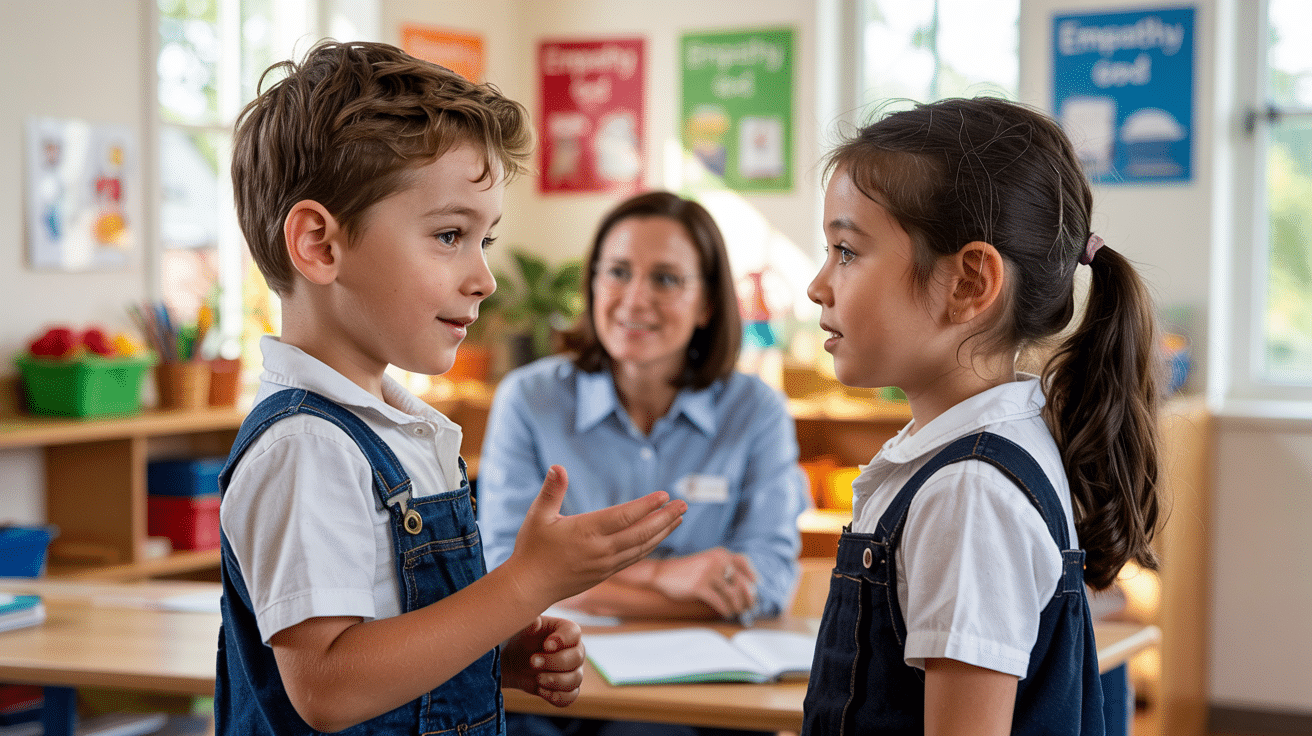
-
I feel hurt when you call me names.
-
I feel upset when you don’t listen to my side of the story.
-
I feel angry when you take my things without asking.
-
I feel frustrated when you interrupt me.
-
I feel sad when you leave me out of the game.
-
I feel worried when we argue.
-
I feel disappointed when you break a promise.
-
I feel left out when you don’t invite me to play.
-
I feel annoyed when you don’t share.
-
I feel uncomfortable when you tease me.
-
I feel sad when you don’t talk to me.
-
I feel angry when you blame me for something I didn’t do.
-
I feel hurt when you ignore my feelings.
-
I feel upset when you laugh at me.
-
I feel frustrated when you don’t take turns.
-
I feel sad when you say mean things about my friends.
-
I feel angry when you push me.
-
I feel hurt when you leave me out on purpose.
-
I feel upset when you don’t keep secrets I told you.
-
I feel frustrated when you don’t follow the rules.
-
I feel sad when you don’t include me in your group.
-
I feel angry when you yell at me.
-
I feel worried when you don’t tell the truth.
-
I feel disappointed when you forget our plans.
-
I feel left out when you whisper and don’t tell me.
-
I feel hurt when you choose someone else over me.
-
I feel upset when you don’t say sorry.
-
I feel frustrated when you don’t let me have a turn.
-
I feel sad when you don’t want to play with me.
-
I feel angry when you break my things.
-
I feel hurt when you make fun of my ideas.
-
I feel upset when you don’t listen to what I say.
-
I feel frustrated when you don’t wait for your turn.
-
I feel sad when you don’t sit with me at lunch.
-
I feel angry when you lie to me.
-
I feel hurt when you leave me out of your plans.
Requesting Change or Help
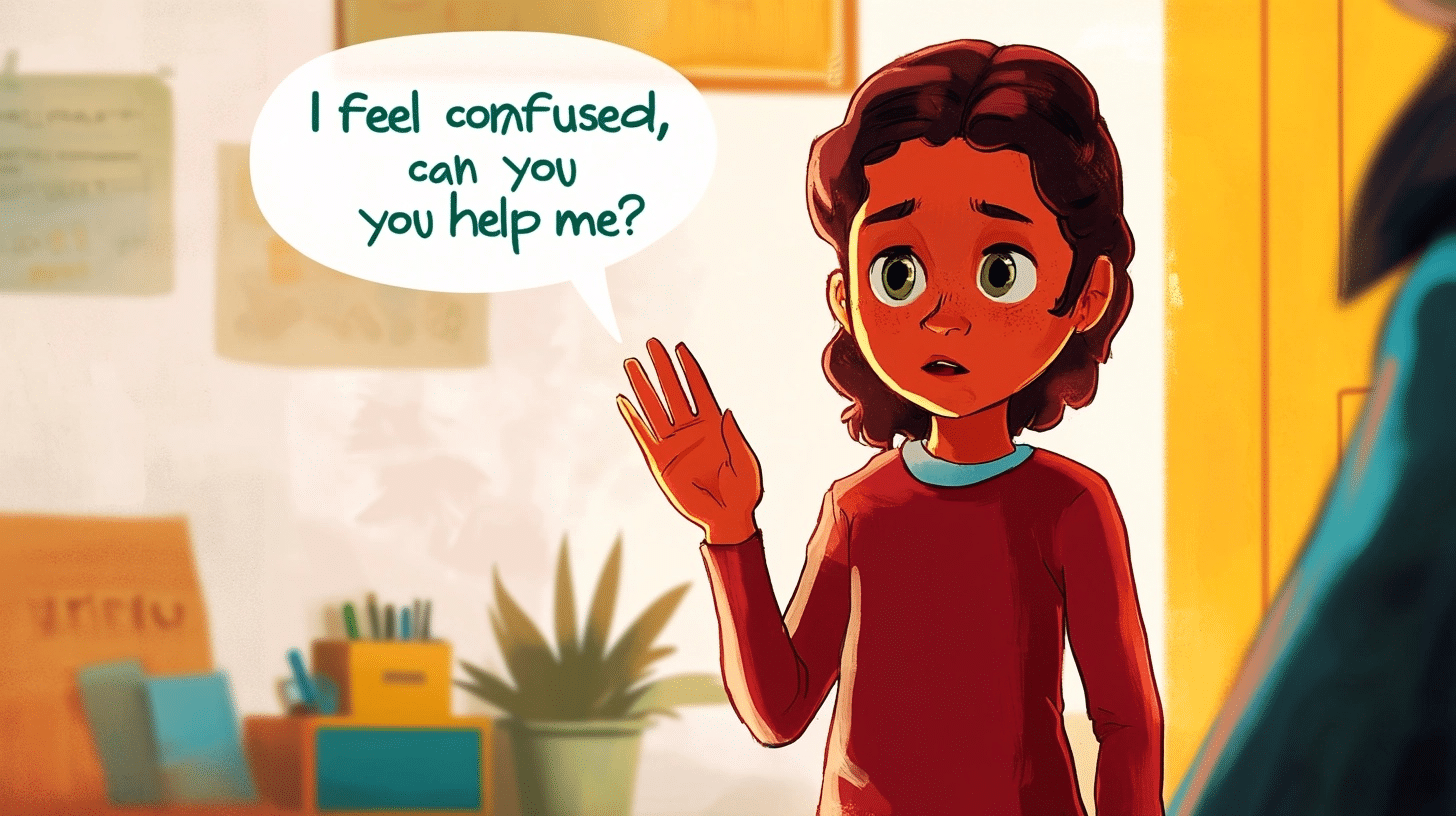
-
I feel upset when I can’t do my homework. Can you help me, please?
-
I feel nervous about the test. Can we study together?
-
I feel sad when I’m alone. Can you sit with me?
-
I feel frustrated when I don’t understand the lesson. Can you explain it again?
-
I feel left out when I’m not picked for the team. Can I have a turn next time?
-
I feel worried when I don’t know what to do. Can you show me how?
-
I feel scared when I have to walk home alone. Can you walk with me?
-
I feel embarrassed when I make mistakes. Can you help me practice?
-
I feel overwhelmed with chores. Can you help me finish them?
-
I feel tired when I stay up late. Can I go to bed earlier?
-
I feel anxious about my project. Can you help me get started?
-
I feel sad when I lose my things. Can you help me find them?
-
I feel nervous about meeting new people. Can you introduce me?
-
I feel confused about the homework. Can you explain it to me?
-
I feel left out at recess. Can you play with me?
-
I feel worried when I’m not sure what to do. Can you give me advice?
-
I feel sad when I don’t have anyone to talk to. Can we talk?
-
I feel frustrated when I can’t finish my work. Can you help me focus?
-
I feel scared during storms. Can you stay with me?
-
I feel anxious about my presentation. Can you listen to me practice?
-
I feel upset when I can’t find my book. Can you help me look for it?
-
I feel tired after school. Can I have some quiet time?
-
I feel sad when I miss my family. Can I call them?
-
I feel nervous about the new school. Can you show me around?
-
I feel confused about the rules. Can you explain them to me?
-
I feel left out when I don’t know the game. Can you teach me?
-
I feel worried about my friend. Can you help me talk to them?
-
I feel sad when I don’t get a turn. Can I go next?
-
I feel frustrated when I can’t tie my shoes. Can you show me how?
-
I feel nervous about the field trip. Can you tell me what to expect?
-
I feel upset when I can’t open my snack. Can you help me?
-
I feel scared in the dark. Can you leave a light on?
-
I feel worried when I forget my homework. Can you remind me?
-
I feel sad when I lose at games. Can you help me practice?
-
I feel confused about the assignment. Can you help me understand it?
-
I feel nervous about the dentist. Can you come with me?
-
I feel upset when I can’t find my favorite toy. Can you help me look?
Creating an I Statement for Kids

Creating I statements for kids helps them express their feelings in a clear and respectful way. This approach enables them to share their experiences without blaming others, resulting in more positive and effective communication. Here’s a simple process for kids to follow when creating their own I statements:
- Start by identifying how you feel (for example: I feel sad, I feel frustrated, I feel happy).
- Describe what happened or what someone did that made you feel that way, using facts instead of judgments or labels.
- Explain why you feel this way, so the other person understands the impact of their actions.
- If needed, add what you would like to happen or what you need (for example: Can you please wait until I’m done?).
- Keep your statement focused on yourself, not on blaming or accusing the other person.
- Use the formula: “I feel [emotion] when [describe the behavior or situation] because [reason]. I would like [request or solution].”
- Practice saying your ‘I’ statement out loud or writing it down to make it easier to use in real-life situations.
- Remember, using I statements helps others listen to you without feeling attacked, making it easier to solve problems together.
I Statements vs. You Statements
| Feature | I Statements | You Statements |
|---|---|---|
| Focus | Speaker’s own feelings, thoughts, and experiences | The other person’s behavior or actions |
| Tone | Non-confrontational, takes personal responsibility | Can sound blaming, accusatory, or critical |
| Example | “I feel upset when plans change suddenly.” | “You always change plans at the last minute.” |
| Effect on the Listener | Encourages empathy and understanding | Often triggers defensiveness or resistance |
| Purpose | Expresses needs and emotions clearly | Assigns blame or makes assumptions |
| Communication | Opens up constructive dialogue and problem-solving | Can escalate conflict or shut down communication |
| Ownership | Speaker owns their feelings and reactions | Shifts responsibility onto the other person |
| Outcome | More likely to lead to positive, solution-focused talks | More likely to cause arguments or hurt feelings |
Wrapping It Up
I statements for kids provide them with a tool that lasts a lifetime. These phrases alter how children express their feelings and needs. They learn to speak with care instead of blame.
Parents who teach this method often see fewer fights at home and better talks with their kids.
The next step? Try one I statement each day with your child. Make it a regular part of your conversations. Write them down or create fun cards to help remember the format. Small changes in words can lead to significant shifts in how families communicate. This skill is beneficial at school, with friends, and also in later work life.
Ready to start? Pick one example from above and practice it today. Your child will appreciate this skill as they grow.


